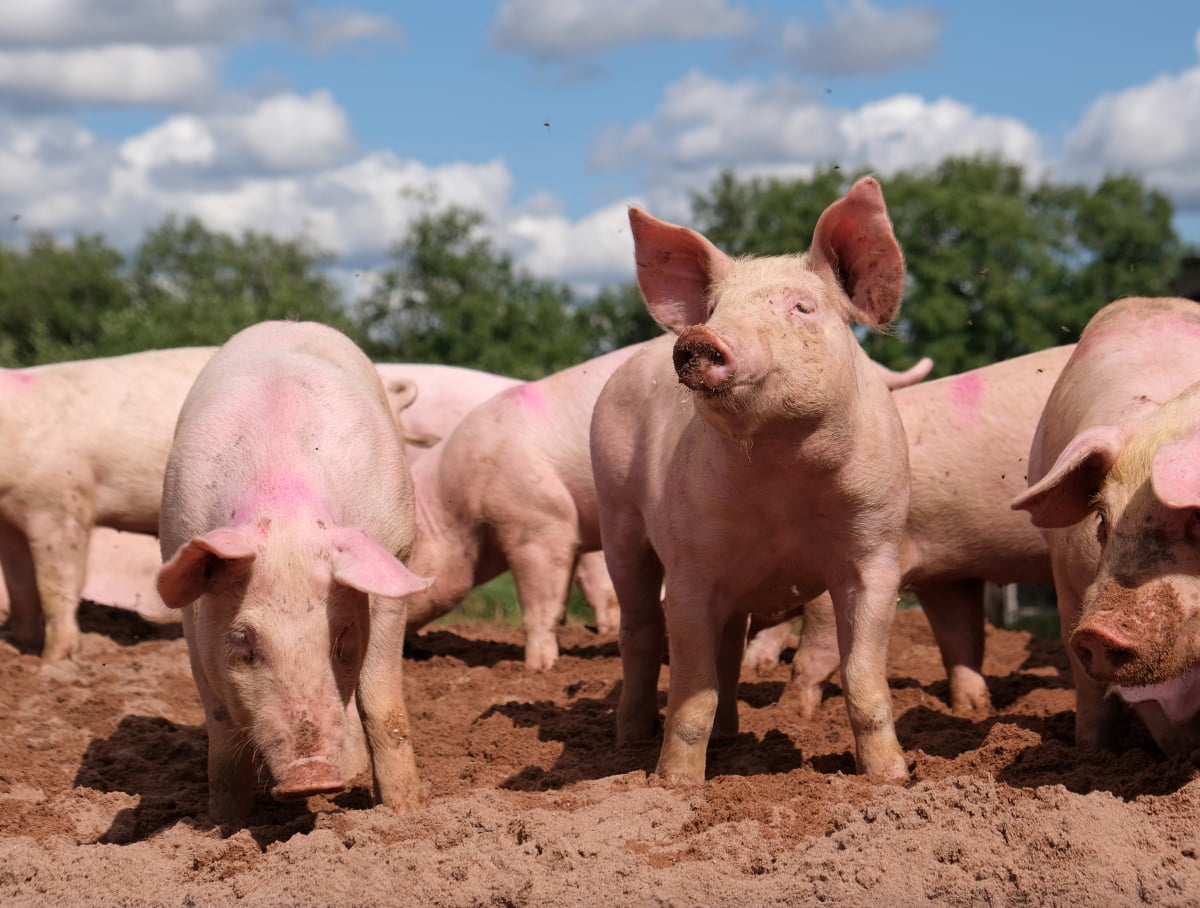According to multiple sources, due to the legal ban on raising pigs on Israeli soil, local farmers do this on special platforms, thereby ingeniously circumventing the restriction. We checked if this is true.
Here's what information you can read on the Russian-language portal Immigrant.today: “It is written in the Torah that it is forbidden to raise pigs or raise pigs on holy land. And in Israel, secular, let’s say, laws are very closely connected with Judaism. But those who raise pigs have managed to circumvent this law and raise pigs on pallets. That is, the pig does not touch the Holy Land, and in this way it is possible to raise pork in Israel.”
Similar information also appeared in the newspaper "Mirror of the week", on the news site WorldRusNews.ru, V "LiveJournal", Twitter and on various forums. In the encyclopedia "Lurkomorye" it is stated that these platforms are real oak parquet. The famous cultural scientist Slavoj Zizek in one of his books even gives a specific height: “...in order to violate the regulation prohibiting the raising of pigs in the holy land of Israel, they are still bred at a height of three feet above sea level... Thus, they manage to violate the spirit of the regulation, adhering to its letter.”
The restriction on eating the meat of certain animals actually goes back to the Torah (Pentateuch). In it it says (Leviticus 11:3-4) What God said to Aaron and Moses: “Say to the children of Israel, These are the animals that you may eat of all the livestock on the earth: Every animal that has cloven hooves and a deep cut in the hoof and chews the cud, you may eat.” Thus, two criteria for the kosher (permissibility) of an animal are established: it must be both artiodactyl and ruminant. The pig corresponds only to the first of these two signs, as stated there. In this case, you can pay attention to the words “on the ground”, which for some could indeed serve as a loophole, albeit not entirely correct.
Archaeological finds They say that before the conquest of Canaan by the Israelites, pork was a popular food product in these parts, but some neighbors (Egyptians, Sidonians, and later Arabs) did not eat it.
The idea of this artiodactyl as an unclean animal took root in the Talmudic era, when instead of the word “pig” the euphemism “davar acher” (literally “another thing”) was often used, that is, something that is better not to be called by its proper name. Pig appears in the Talmud as a symbol of everything that is most repulsive: “A pig is a walking cesspool.”
What happened to this tradition in the 20th century? Peter Lyukimson in his book "Pig Wars in the Holy Land" writes: “Thunder struck in 1923, when a group of Jewish youth from Galicia, belonging to the pro-communist Zionist organization Hashomer Hatzair (Young Guard), decided to create Kibbutz Mizra in the Jezreel Valley. And as one of the main directions of their activity, the kibbutzniks decided to make pig breeding, thus throwing an open challenge to both religious Jews and Muslim Arabs, convinced that the foot of this “unclean” animal should not desecrate the Holy Land. A huge scandal broke out, but the members of Hashomer Hatzair decided to firmly insist on their own, promising, however, as a compromise that they would breed pigs so that their feet would not actually set foot on the ground. And this promise, by the way, was kept: for many decades now, pigs in Kibbutz Mizra have been raised on plank platforms raised above the ground to a height of 20 cm.”
That is, we are talking about raising pigs above the ground in one specific kibbutz (agricultural commune). As evidenced sources, a full-fledged pork factory appeared in Kibbutz Mizra much later than 1923, only in 1957. AND existed half a century, until in 2010 the plant’s property was not sold out. However, there is one caveat: back in the 1960s, kibbutz residents moved its production on lands in the Nazareth area owned by Christians and Muslims. For what? To answer this question, let's finally look into the Israeli Pig ban law, which was adopted on July 23, 1962 and, with certain amendments, is still in effect today:
1. It is prohibited to raise, keep or slaughter pigs.
2. The provisions of paragraph 1 do not apply to:
a) to the settlements listed in the annex.
b) for the raising, keeping and slaughter of pigs in research institutions and public zoos.
The appendix lists nine localities with significant non-Jewish populations. Kibbutz Mizra is not among them, but there is neighboring Nazareth, which was mentioned above. Thus, the law did not place any restrictions on raising pigs “on land” in the literal sense. Moreover, he allowed this activity in a number of communities where the proportion of those professing Judaism was relatively small. In other words, even if somewhere in Israel pigs were raised on platforms, the reason for this did not lie in the legislative plane.
For several years, until 1962, the role of this law was played by a similar municipal act. And an additional restriction for Israeli pork consumers was Meat law 1994, which banned the import of non-kosher meat products into the country. However, later exceptions were made for sausages, lard and a number of other products. And only in 2019 they were imposed limitation in the form of the need to have a kosher certificate.
Does the above mean that after the liquidation of the pig farm owned by Kibbutz Mizra, the raising of pigs in Israel ceased? Not at all. Back in 2005, when the pig farm existed, in the country there were 18 similar farms. In 2012 there were already 26, A study, conducted by local experts, reported six-digit annual pig slaughter rates in Israel:

Finally, out of the ordinary gears Regarding pig breeding in Israel, we see that at least some of the animals do not live on any special platforms. From all this we can conclude that information about raising pigs on special platforms is based, at best, on one or a few historical local examples. These examples, if they occurred, could be associated with attempts to adapt to unwritten historical canons purity of meat and had nothing to do with legislation. It should be noted that many international resources recommend arrange the floor in a room for pigs at a height of 60 cm from the ground, that is, in general, the existence of such premises does not say anything about religious norms.
Mostly not true
If you find a spelling or grammatical error, please let us know by highlighting the error text and clicking Ctrl+Enter.







